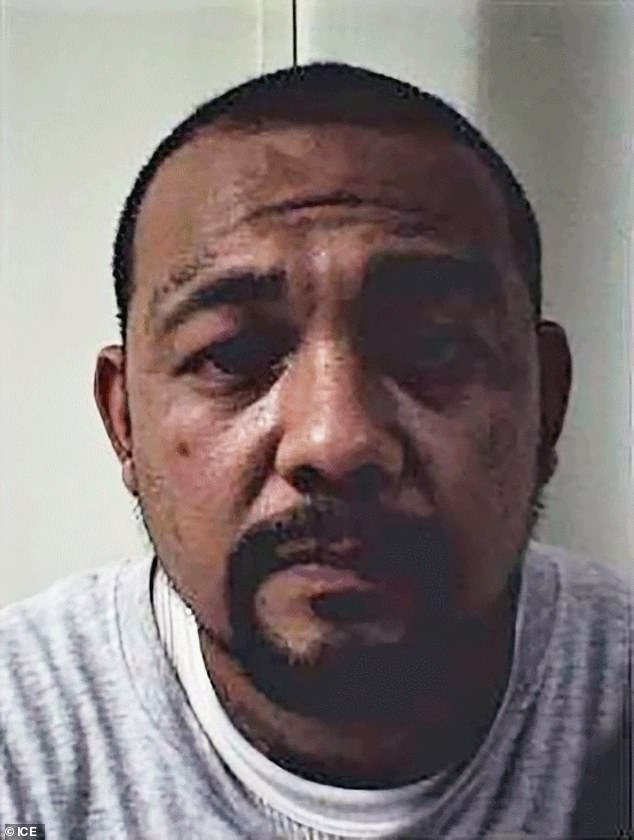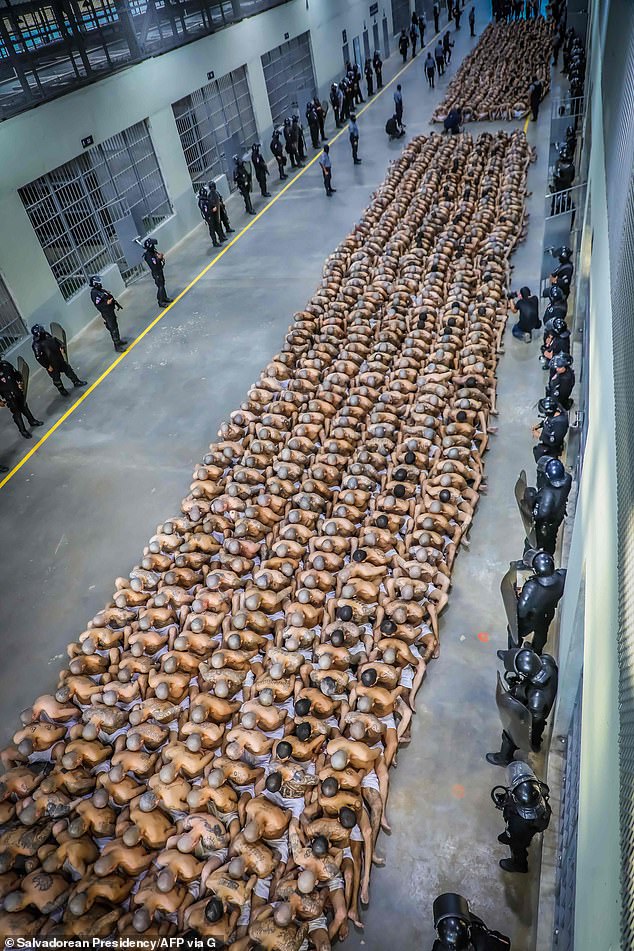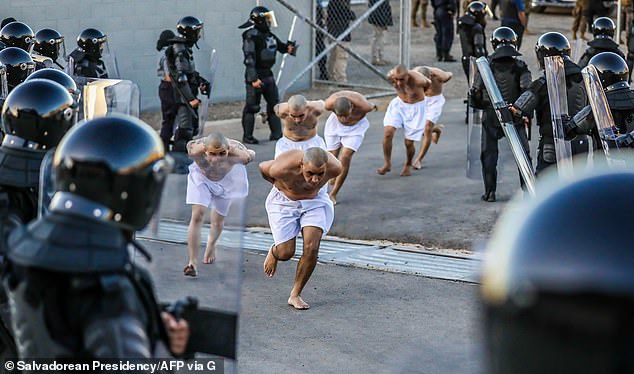MS-13 senior leader, who oversaw murders and kidnappings and wanted in New York, is arrested in Southern California after four years on the run
- Freddy Iván Jandres-Parada was captured by the FBI in San Diego on March 7
- The MS-13 leader had been on the run since December 2020 when a federal court in New York indicted him and thirteen members on terrorism charges.
- He and the other members were identified as members of the board of directors of the criminal organization known as Ranfla Nacional
A senior MS-13 leader — involved in murders, kidnappings and other violent crimes — is in federal custody after being arrested in California earlier this month.
Freddy Iván Jandres-Parada had been on the run since December 2020 after he and fourteen other high-ranking MS-13 members were indicted in federal court for the Eastern District of New York.
Jandres-Parada, a native of El Salvador, was arrested by the FBI in San Diego on March 7 on terrorism charges.
The 48-year-old had waived his right to bail, court records show.
Federal prosecutors in New York identified Jandres-Parada and the other thirteen defendants as members of the board of directors of the criminal organization known as the Ranfla Nacional.
Freddy Iván Jandres-Parada, one of MS-13’s top leaders, was captured by the FBI on March 7 in San Diego. In December 2020, he was indicted in a New York federal court on terrorism charges.

Federal prosecutors accuse Jandres-Parada and 13 other high-ranking MS-13 leaders of plotting and carrying out acts of violence and murder in El Salvador, the United States and other countries
Two other members, César Humberto López-Larios and Hugo Armando Quinteros-Mineros, are still on the run.
Authorities allege that the Ranfla Nacional and two other MS-13 cells plotted and carried out violent crimes and murders in El Salvador, the United States and other countries around 2002.
Jandres-Parada and the thirteen defendants are alleged to have orchestrated acts of violence against civilians, law enforcement officers and rival gang members.
They are also accused of drug distribution and involved in multiple cases of extortion.
MS-13 gang members received training in military-style camps and were given military-style weapons, including improvised explosive devices and rocket launchers.
In 2012, members of Ranfla Nacional allegedly struck deals with the government of El Salvador in exchange for “benefits and concessions” obtained by unleashing a wave of violence that threatened and intimidated civilians, while also targeting armed forces officials and the police, and interfered in elections in El Salvador.
The Ranfla Nacional expanded MS-13 operations beyond El Salvador’s borders, purchasing weapons from Mexican criminal organizations, including the Jalisco New Generation Cartel and the Sinaloa Cartel, and becoming involved in human trafficking and smuggling.

Police officers in riot gear monitor the arrival of prisoners from the MS-13 and 18 gangs to the new prison ‘Terrorist Confinement Center’

Handout photo released by the Press Secretary of the Presidency of El Salvador showing police officers standing guard during the arrival of prisoners belonging to the MS-13 and 18 gangs to the new prison ‘Terrorist Confinement Center’
The United States District Court, Eastern District of New York charged him with conspiracy to provide and conceal material support and resources to terrorists, conspiracy to commit terrorist acts transcending national boundaries, conspiracy to commit terrorism financing and narco-terrorism conspiracy.
MS-13, also known as La Mara Salvatrucha, recruits young teens from El Salvador and Honduras, although many gang members were born in the US
The gang has been blamed for dozens of murders across much of Long Island since January 2016.
The gang’s influence and violence on Long Island have declined in recent years due to federal crackdowns.
Former President Donald Trump made eradicating MS-13 a focus of his administration, visiting Long Island several times to meet with law enforcement officials and the families of the gang’s victims.
MS-13 is suspected of having alliances with Mexican cartels and engaging in narcotics trafficking; immigrant smuggling and extortion; kidnappings; and arms trade.
